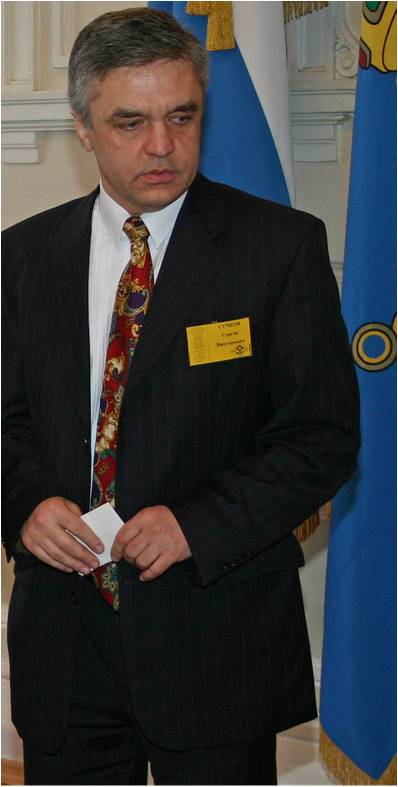4338
Scientific Program

Sergey V. Suchkov,
Director Sechenov University, Russia
Biography:
Sergey Suchkov was born in the City of Astrakhan, Russia, in a family of dynasty medical doctors. In 1980, graduated from Astrakhan State Medical University and was awarded with MD. In 1985, maintained his PhD as a PhD student of the I.M. Sechenov Moscow Medical Academy and Institute of Medical Enzymology, USSR Academy of Medical Sciences, Moscow, Russia. In 2001, finished the PostDoc Research Fellowship Program and maintained his Doctor Degree at the National Institute of Immunology, Russia. From 1985 through 1987, worked at Inst of Med Enzymology, USSR Academy of Medical Sciences. From 1987 through 1989, was a senior Researcher, Koltzov Inst of Developmental Biology, USSR Academy of Sciences. From 1989 through 1995, was being a Head of the Lab of Clinical Immunology and Immunobiotechnology, Helmholtz Eye Research Inst in Moscow. From 1995 through 2004, was being a Chairman of the Dept for Clinical Immunology, Moscow Clinical Research Institute (MONIKI) and the Immunologist-in-Chief of the Moscow Regional Ministry of Health. In 1993-1996, was an Executice Secretary-in-Chief of the Editorial Board, Biomedical Science, an international journal published jointly by the USSR Academy of Sciences and the Royal Society of Chemistry, UK.
Abstract
A new systems approach to diseased states and wellness result in a new branch in the healthcare services, namely, personalized and precision medicine (PPM). To achieve the implementation of PM concept, it is necessary to create a fundamentally new strategy based upon the subclinical recognition of biopredictors of hidden abnormalities long before the disease clinically manifests itself. Each decision-maker values the impact of their decision to use PPM on their own budget and well-being, which may not necessarily be optimal for society as a whole. It would be extremely useful to integrate data harvesting from different databanks for applications such as prediction and personalization of further treatment to thus provide more tailored measures for the patients resulting in improved patient outcomes, reduced adverse events, and more cost effective use of health care resources. A lack of medical guidelines has been identified by the majority of responders as the predominant barrier for adoption, indicating a need for the development of best practices and guidelines to support the implementation of PPM! Implementation of PPM requires a lot before the current model “physician-patient” could be gradually displaced by a new model “medical advisor-healthy person-at-risk”. This is the reason for developing global scientific, clinical, social, and educational projects in the area of PPM to elicit the content of the
new branch.
- Reproductive Endocrinology
- Cryopreservation
- Reproductive Physiology and Metabolic Disorders
- Assisted Reproductive Technology (ART)
- Reproductive Medicine & Sexually Transmitted Diseases
- Reproductive Immunology
- Obstetrics & Obstetricians
- Infertility Drugs and related risk
- Fertility Awareness & Human Reproductive Cancers
- Polycystic Ovary Syndrome (PCOS)
- Latest Innovation in Gynaecological Pathology
- Oncology & Its subdivision
- Reproductive Health & Hazards
- Reproductive Toxicology

